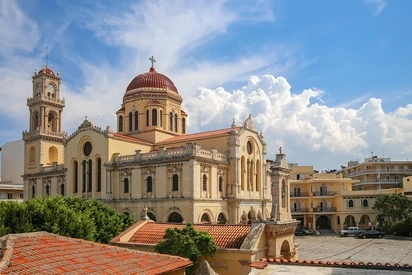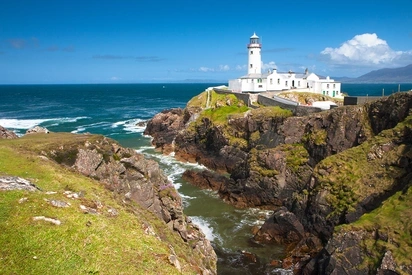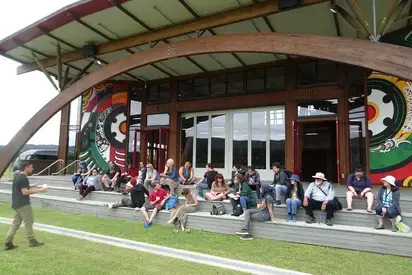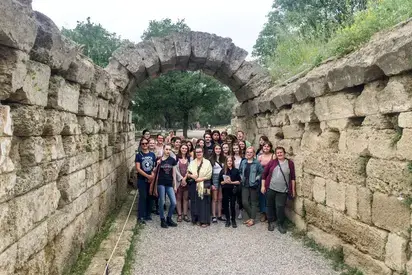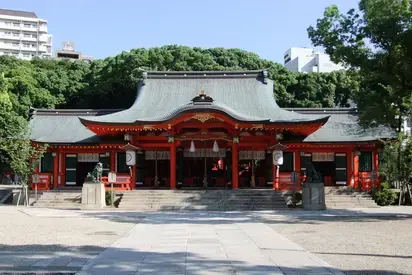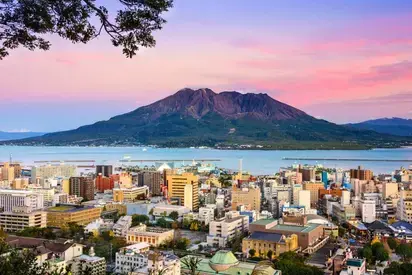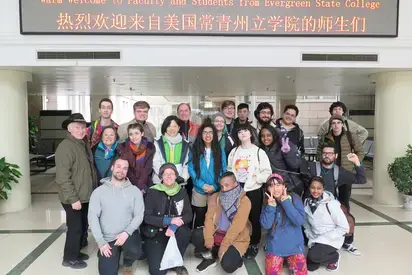Choose the Right Program
With opportunities all over the globe, Greeners can dig deep and explore their passions through a variety of study abroad opportunities. Connect what you love to your goals and learn how Evergreen can be your way to the world.

Do What You Love, Anywhere
Whether you are following a pre-built path or forging your own, explore study abroad programs related to your interests.
Evergreen Faculty-led Programs Abroad
Live and learn abroad with faculty and fellow Greeners.
Build community and study themes before travel, then engage in theory to practice while abroad with individual courses and engaging programs. Travel and learn with a group of Evergreen students and faculty for up to one quarter. For multi-quarter programs, the study abroad component of each program typically takes place Spring Quarter.
Evergreen Exchange Programs
Immerse yourself for a semester or year-long experience. Attend an Evergreen international or domestic partner institution while paying regular Evergreen tuition and earning credit toward your Evergreen degree. Students pay for their own travel and living expenses overseas.
Consortium Programs
Access coursework unavailable at Evergreen with more than 200 unique experiences and destination programs around the world while earning credit toward their Evergreen degree. Students remain enrolled at Evergreen, but pay the provider's fees rather than Evergreen tuition.
Consortium Program Benefits and Details
Program Benefits
- Partner Programs offer more than 200 destination programs with a multitude of formats and options
- Some financial aid awards transfer and can be used to pay for program costs
- Credit earned through consortium programs counts as credit earned at Evergreen, so it overrides the usual transfer credit limits set by Evergreen
Program Details
While enrolled in a Consortium program, students pay the program's tuition and fees, but not Evergreen tuition. Evergreen does charge a Consortium enrollment fee of $425.00 per semester away.
Credit that you earn transfers from the partner institution to Evergreen smoothly as long as students earn grades of 'C' or better. A grade of 'C-' or below will not qualify for transfer credit.
International Programs
Academic Programs International (API)
American Institute for Foreign Study (AIFS)
American University of Cairo (AUC)
Arcos Learning Abroad
Budapest Semesters in Math (BSM)
Center for Global Education and Experience (CGEE)
Council for International Educational Exchange (CIEE)
Danish Institute for Study Abroad (DIS)
IFSA-Butler
International Partnership for Service Learning (IPSL)
PLU Gateway
School for Field Studies (SFS)
SIT Study Abroad
University Studies Abroad Consortium (USAC)
Victoria University of Wellington in New Zealand
Wildlands Studies
Domestic United States-based Programs
Unaffiliated Program Petition
If you wish to participate in a program that is NOT affiliated with Evergreen, you must petition to the Office of International Programs and Services for approval. This approval is required so you can remain enrolled at Evergreen during your program, maintain your financial aid, and receive Evergreen credit for your participation. Before starting the petition, search existing partnerships through the Evergreen Study Abroad Portal. What you’re looking for may already exist.
Eligibility
- Be 18 years or older by the time the program starts
- Be in good academic standing
- Meet all program eligibility requirements
- Be in good conduct standing with the college
- The unaffiliated program must offer a transcript upon completion from an accredited institution.
Deadlines to File Petition
- Departing in Fall - May 1
- Departing in Winter - September 15
- Departing in Spring - January 15
- Departing in Summer - April 15
Timing and Credits
If your program is approved, students must be enrolled full time. Typically, credit loads are as follows:
- Quarter - at least 12 credits
- Semester - at least 18 credits
- Academic Year - At least 36 credits
Exact credit amounts determined upon return from study abroad program.
Cost
Approved unaffiliated programs are treated as consortium programs which require a $425 Consortium Enrollment Fee from Evergreen. All unaffiliated program participants from Evergreen must purchase Evergreen’s international insurance plan.
The program fee is set by and paid to the program provider directly from the student.
How to File a Petition
To file a petition, the Evergreen student must write a statement addressing the following:
- How does this program suit your needs better than any other affiliated Evergreen program? You may consider the program structure, disability supports, credits, academic offerings, and/or cost.
Your statement cannot be more than 300 words. Accepted formats include MS Word, PDF, or in the body of an email.
Petitions must be sent to studyabroad@evergreen.edu by the deadlines listed above and include a subject line “Unaffiliated Program Petition”.
What to Expect after Filing a Petition
Students will get a response from the Office of International Programs & Services within two weeks of filing. The office may gather a committee to review your petition.
If your unaffiliated program is approved, you will be asked to apply through Evergreen, like any other consortium program. Applicants must meet specified deadlines. After receiving application approval, students must complete pre-departure requirements specified in the Evergreen Study Abroad Portal.
Questions
Any questions about the process or unaffiliated programs can be directed to studyabroad@evergreen.edu.
Individual Study Abroad
Don't see a program that supports your goals? Create your own based on your interests and timeframe! Evergreen's unique Individual Learning contracts can take place in another country allowing students to create their own study abroad experience. Students will work with a faculty advisor at Evergreen and a field advisor where they plan to complete their contract.
Students are responsible for planning and arranging details of their individual study abroad. Students may incorporate outside entities into their contracts, such as a language school. This option is often the most time flexible route to overseas study. This type of program typically isn't valid for an international student visa, so students should plan around tourist visa restrictions.
Project Examples:
- Develop your photography portfolio
- Intern with a refugee resettlement organization
- Participate in a health and nutrition project
Explore
Study Abroad Programs by Path
A great place to start if you know what you love, but not where you want to go. Find a study abroad program with sufficient coursework related to your path and interests.
El Camino: Latinx Studies, Latin American Studies, and Multilingual Education
Latin & Latinx studies, multilingual education, english language
El Camino: Latinx Studies, Latin American Studies, and Multilingual Education
Learn more about this Path
| Study Abroad Program | World Region | Program Type | Topics | Additional Information |
|---|---|---|---|---|
The Spanish-Speaking World: Cultural Crossing (Mexico) | North America, Latin America | Evergreen Faculty-led Course Abroad | typically offered every other academic year; full academic year program with spring quarter abroad | |
| AIFS Abroad | Multiple | Consortium | ||
| API Abroad | Multiple | Consortium | ||
| Arcos Learning Abroad | Multiple | Consortium | ||
| Augsburg CGEE: Student Teaching in Mexico | North America, Latin America | Consortium | Teaching English | |
| Center for Global Education and Experience (CGEE) | Multiple | Consortium | ||
| CIEE | Multiple | Consortium | ||
| CIEE in Santiago de los Caballeros, Dominican Republic | North America, Caribbean | Consortium | Teaching English | |
| IFSA Butler | Multiple | Consortium | ||
| International Partnership for Service Learning (IPSL) | Multiple | Consortium | ||
| PLU Gateway in Oaxaca, Mexico | North America, Latin America | Consortium | ||
| SIT Study Abroad | Multiple | Consortium | ||
| University Studies Abroad Consortium (USAC) | Multiple | Consortium | ||
| USAC in Gwangju, South Korea | East Asia | Consortium | Teaching English |
Environmental Studies
Botany, earth science, ecology, marine science, natural resource management, zoology
Environmental Studies
Learn more about this Path
| Study Abroad Program | World Region | Program Type | Topics |
|---|---|---|---|
| AIFS American College of Greece | Europe | Consortium | Marine Science |
| AIFS Valencia, Spain | Europe | Consortium | Ecology, Natural Resource Management |
| API Abroad Dubrovnik, Croatia | Europe | Consortium | Marine Science |
| API Abroad Costa Rica | Central America, Latin America | Consortium | Ecology, Marine Science, Natural Resource Management, Zoology |
| CIEE in Botswana | Southern Africa, Sub-saharan Africa | Consortium | Botany, Earth Science |
| Hochschule Weihenstephan-Triesdorf University | Europe | Evergreen Exchange | Natural Resource Management |
| PLU Gateway in Namibia | Southern Africa, Sub-saharan Africa | Consortium | Earth Science, Ecology, Natural Resource Mangement |
| School for Field Studies | Multiple | Consortium | Botany, Ecology, Marine Science, Zoology |
| SIT Madagascar: Biodiversity and Natural Resource Management | East Africa | Consortium | Natural Resource Management |
| SIT Tanzania: Zanzibar Coastal Ecology and Natural Resource Management | East Africa | Consortium | Ecology, Natural Resource Management |
| USAC Australia – Gold Coast | Oceania | Consortium | Ecology, Marine Science, Natural Resource Management |
| USAC Australia - Melbourne | Oceania | Consortium | Marine Science, Zoology |
| USAC in Cork, Ireland | Europe | Consortium | Botany |
| USAC in Reading, England | Europe | Consortium | Ecology |
| USAC Stellenbosch, South Africa | Southern Africa, Sub-saharan Africa | Consortium | Earth Science, Ecology |
| USAC in Sweden | Europe | Consortium | Ecology |
| Victoria University of Wellington in New Zealand | Oceania | Consortium | Earth Science, Ecology |
| Wildlands Studies | Multiple | Consortium | Botany, Ecology, Marine Science |
Food and Agriculture
Food access, food systems, sustainable agriculture
Food and Agriculture
Learn more about this Path
| Study Abroad Program | World Region | Program Type | Topics |
|---|---|---|---|
| API Abroad Costa Rica | Central America, Latin America | Consortium | |
| API Abroad Lorenzo de’Medici: The Italian International Institute, Florence | Europe | Consortium | |
| CIEE in Legon, Ghana | Southern Africa, Sub-saharan Africa | Consortium | |
| DIS Abroad in Copenhagen, Denmark | Europe | Consortium | |
| Hochschule Weihenstephan-Triesdorf University | Europe | Evergreen Exchange | |
| IPSL in Greece | Europe | Consortium | |
| IPSL in South Africa | Southern Africa, Sub-saharan Africa | Consortium | |
| PLU Gateway in Trinidad and Tobago | South America, Caribbean | Consortium | |
| SIT Italy (Summer) | Europe | Consortium | Food Security and Nutrition |
| SIT Study Abroad | Multiple | Consortium | IHP Food Systems |
| USAC in Gwangju, South Korea | East Asia | Consortium | |
| USAC at Massey University in New Zealand | Oceania | Consortium | |
| USAC in Reading, England | Europe | Consortium | |
| USAC Stellenbosch, South Africa | Southern Africa, Sub-saharan Africa | Consortium | |
| USAC at University College Cork in Ireland | Europe | Consortium | Food Business and Development |
Humanities: Culture, Text, and Language in World Societies
Global business and culture, history, arts, literature
Humanities: Culture, Text, and Language in World Societies
Learn more about this Path
| Study Abroad Program | World Region | Program Type | Topics | Additional Information |
|---|---|---|---|---|
| Paris Muse: Evoking Place in Literature, History, and Music (France) | Europe | Evergreen Faculty-led Course Abroad | yearlong program with experience in France in spring term | |
| Greece and Italy: An Artistic and Literary Odyssey (Greece and Italy) | Europe | Evergreen Faculty-led Course Abroad | typically offered every three years; full academic year program with partial spring quarter abroad | |
| Ireland in History and Memory (Ireland) next offered 2025-26 | Europe | Evergreen Faculty-led Course Abroad | yearlong program with experience in Ireland in part of spring quarter | |
| The Spanish-Speaking World: Cultural Crossing (Mexico) Next Offered 2024-25 | North America, Latin America | Evergreen Faculty-led Course Abroad | typically offered every other academic year; full academic year program with spring quarter abroad | |
| Roskilde University, Denmark | Europe | Evergreen Exchange | Cultural Encounters, Global Humanities | |
| University of Hyogo, Japan | East Asia | Evergreen Exchange | Japanese Language and Culture | |
| University of Miyazaki, Japan | East Asia | Evergreen Exchange | Japanese Language and Culture and Business | |
| WuYi Universisty, China | East Asia | Evergreen Exchange |
Integrated Biology and Chemistry
Biology, cell and molecular biology, chemistry, medical care, microbiology, pre-health sciences
Integrated Biology and Chemistry
Learn more about this Path
| Study Abroad Program | World Region | Program Type | Topics |
|---|---|---|---|
| AIFS in Valencia, Spain | Europe | Consortium | Biology, Pre-health sciences |
| American University of Cairo, Egypt | Northern Africa | Consortium | Biology, Chemistry |
| API at Maynooth University in Ireland | Europe | Consortium | Biology, Chemistry, Cell or molecular biology |
| DIS in Copenhagen | Europe | Consortium | Biology |
| DIS in Stockholm | Europe | Consortium | Biology, Medical care |
| PLU Gateway in Namibia | Southern Africa, Sub-saharan Africa | Consortium | Biology, Chemistry, Microbiology |
| Roskilde University, Denmark | Europe | Evergreen Exchange | Biology, Chemistry, Cell or molecular biology |
| USAC in Australia, Gold Coast | Oceania | Consortium | Biology, Chemistry, Microbiology, Cell or molecular biology |
| USAC in Brighton, England | Europe | Consortium | Biology |
| USAC at Cork, Ireland | Europe | Consortium | Chemistry, Microbiology |
| USAC in Da Nang, Vietnam | Southeast Asia | Consortium | Biomedical Science |
| USAC in Maastricht, Netherlands | Europe | Consortium | Biology, Chemistry, Pre-health sciences |
| USAC in Reading, England | Europe | Consortium | Biology, Chemistry |
| USAC at St. Andrews, Scotland | Europe | Consortium | Biology, Chemistry, Cell or molecular biology |
| USAC Stellenbosch, South Africa | Southern Africa, Sub-saharan Africa | Consortium | Biology, Chemistry, Cell or molecular biology |
| USAC at Yonsei University, South Korea | East Asia | Consortium | Chemistry, Cell or molecular biology |
| Victoria University of Wellington, New Zealand | Oceania | Consortium | Biology, Chemistry |
Literary Arts and Studies
Creative writing, poetry, world literature
Literary Arts and Studies
Learn more about this Path
| Study Abroad Program | World Region | Program Type | Topics |
|---|---|---|---|
| AIFS Contemporary Hispanic Studies in Seville, Spain | Europe | Consortium | Literature |
| AIFS in Granada, Spain | Europe | Consortium | Literature |
| American University of Cairo, Egypt | Northern Africa | Consortium | Literature |
| API at Charles University, Czech Republic | Europe | Consortium | Literature |
| API in Rome, Italy | Europe | Consortium | Creative Writing |
| CIEE in Botswana | Southern Africa, Sub-saharan Africa | Consortium | Literature |
| DIS Abroad in Copenhagen and Stockholm | Europe | Consortium | Literature |
| PLU Gateway in Trinidad and Tobago | South America, Caribbean | Consortium | Literature |
| SIT Czech Republic | Europe | Consortium | Creative Writing |
| USAC in Cork, Ireland | Europe | Consortium | Literature |
| USAC programs in England | Europe | Consortium | Literature, Creative Writing |
| USAC in Maastricht, Netherlands | Europe | Consortium | Literature |
| USAC at Massey University, New Zealand | Oceania | Consortium | Literature |
| USAC Stirling, Scotland | Europe | Consortium | Literature |
| Victoria University of Wellington, New Zealand | Oceania | Consortium | Creative Writing |
Mathematical, Physical and Computer Sciences
Computer science, finance, mathematics, physics
Mathematical, Physical and Computer Sciences
Learn more about this Path
| Study Abroad Program | World Region | Program Type | Topics |
|---|---|---|---|
| American University of Cairo, Egypt | Northern Africa | Consortium | Computer Science, Mathematics, Physics |
| API Abroad in Iceland | Europe | Consortium | Computer Science |
| API at Maynooth University in Ireland | Europe | Consortium | Computer Science, Mathematics, Physics |
| Budapest Semesters in Mathemtics | Europe | Consortium | Mathematics |
| DIS in Copenhagen and Stockholm | Europe | Consortium | Computer Science |
| IFSA in Rome, Italy | Europe | Consortium | Financial Mathematics |
| PLU Gateway in Namibia | Southern Africa, Sub-saharan Africa | Consortium | Computer Science, Mathematics, Physics |
| Roskilde University, Denmark | Europe | Evergreen Exchange | Computer Science, Mathematics, Physics |
| USAC in Australia, Gold Coast | Oceania | Consortium | Computer Science, Mathematics |
| USAC in Brighton, England | Europe | Consortium | Computer Science |
| USAC at Cork, Ireland | Europe | Consortium | Computer Science, Mathematics, Physics |
| USAC in Da Nang, Vietnam | Southeast Asia | Consortium | Computer Science |
| USAC at Korea University, South Korea | East Asia | Consortium | Computer Science, Mathematics, Physics |
| USAC in Reading, England | Europe | Consortium | Computer Science, Mathematics, Physics |
| USAC at St. Andrews, Scotland | Europe | Consortium | Computer Science, Mathematics, Physics |
| USAC Stellenbosch, South Africa | Southern Africa, Sub-saharan Africa | Consortium | Computer Science, Math, Physics |
| USAC in Stirling, Scotland | Europe | Consortium | Computer Science, Mathematics |
| USAC in Sweden | Europe | Consortium | Computer Science, Mathematics |
| Victoria University of Wellington, New Zealand | Oceania | Consortium | Computer Science, Mathematics |
Native American and Indigenous Programs
Globalization, indigenous cultures and traditions, traditional medicine, public health
Native American and Indigenous Programs
Learn more about this Path
| Study Abroad Program | World Region | Program Type | Topics | Additional Information |
|---|---|---|---|---|
| API Abroad at Maynooth University in Dublin, Ireland | Europe | Consortium | Irish Heritage Certificates | |
| IPSL in Peru | South America, Latin America | Consortium | ||
| Ireland in History and Memory (Ireland) next offered 2025-26 | Europe | Evergreen Faculty-led Course Abroad | yearlong program with experience in Ireland in part of spring quarter | |
| PLU Gateway in Namibia | Southern Africa, Sub-saharan Africa | Consortium | ||
| PLU Gateway in Trinidad and Tobago | South America, Caribbean | Consortium | ||
| SIT Chile | South America, Latin America | Consortium | Public Health, Traditional Medicine, and Community Empowerment | |
| SIT Nepal | Asia | Consortium | Tibetan and Himalayan Peoples | |
| SIT Peru | South America, Latin America | Consortium | Indigenous Peoples and Globalization | |
| The Spanish-Speaking World: Cultural Crossing (Mexico) Next Offered 2024-25 | North America, Latin America | Evergreen Faculty-led Course Abroad | typically offered every other academic year; full academic year program with spring quarter abroad | |
| USAC at Griffith University in Gold Coast, Austrailia | Oceania | Consortium | Indigenous Studies | |
| USAC at University College Cork in Ireland | Europe | Consortium |
Political Economy, Global Studies, and Environmental Justice
Global business and culture, language, political science, environmentalism
Political Economy, Global Studies, and Environmental Justice
Learn more about this Path
| Study Abroad Program | World Region | Program Type | Topics | Additional Information |
|---|---|---|---|---|
| Center for Global Education and Experience (CGEE) | Multiple | Consortium | ||
| DIS Abroad | Europe | Consortium | ||
| Greece and Italy: An Artistic and Literary Odyssey | Europe | Evergreen Faculty-led Course Abroad | typically offered every three years; full academic year program with partial spring quarter abroad | |
| International Programs for Service Learning (IPSL) | Multiple | Consortium | ||
| Ireland in History and Memory - next offered 2025-26 | Europe | Evergreen Faculty-led Course Abroad | yearlong program with experience in Ireland in part of spring quarter | |
| Paris Muse: Evoking Place in Literature, History, and Music (France) | Europe | Evergreen Faculty-led Course Abroad | yearlong program with experience in France in spring term | |
| Roskilde University, Denmark | Europe | Evergreen Exchange | Cultural Encounters, International Studies | |
| The Spanish-Speaking World: Cultural Crossing (Mexico) Next Offered 2024-25 | North America, Latin America | Evergreen Faculty-led Course Abroad | typically offered every other academic year; full academic year program with spring quarter abroad | |
| University of Hyogo, Japan | East Asia | Evergreen Exchange | Japanese Language and Culture | |
| University of Miyazaki, Japan | East Asia | Evergreen Exchange | Japanese Language and Culture and Business | |
| Victoria University Wellington, New Zealand | Oceania | Consortium | typically offered every other academic year; full academic year program with spring quarter abroad | |
| WuYi Univeristy, China | East Asia | Evergreen Exchange |
Psychology, Health and Community
Health care, nutrition, mental health, community studies
Psychology, Health and Community
Learn more about this Path
| Study Abroad Program | World Region | Program Type | Topics | Additional Information |
|---|---|---|---|---|
| American University of Cairo, Egypt | Northern Africa | Consortium | Psychology | |
| AIFS in Valencia, Spain | Europe | Consortium | Health | |
| API Abroad in Costa Rica | Central America, Latin America | Consortium | Health | |
| CGEE Social Work Cuernavaca, Mexico | North America, Latin America | Consortium | Community Studies | |
| CIEE Psychology and Health Sciences in Seville, Spain | Europe | Consortium | Psychology, Health | |
| DIS Abroad in Copenhagen and Stockholm | Europe | Consortium | Psychology, Health | |
| IPSL in South Africa | Southern Africa, Sub-saharan Africa | Consortium | Health | |
| PLU Gateway in Namibia | Southern Africa, Sub-saharan Africa | Consortium | Psychology, Community Studies | |
| PLU Gateway in Trinidad and Tobago | South America, Caribbean | Consortium | Psychology, Community Studies | |
| Roskilde University, Denmark | Europe | Evergreen Exchange | Psychology | |
| SIT Study Abroad: Global Health and Wellbeing | Multiple | Consortium | Health | |
| The Spanish-Speaking World: Cultural Crossing (Mexico) Next Offered 2024-25 | North America, Latin America | Evergreen Faculty-led Course Abroad | typically offered every other academic year; full academic year program with spring quarter abroad | |
| USAC in Australia, Gold Coast | Oceania | Consortium | Pschology, Community Studies, Health | |
| USAC in India | South Asia | Consortium | Community Studies | |
| USAC in London at London Metropolitan University | Europe | Consortium | Health, Nutrition | |
| USAC in Maastricht, Netherlands | Europe | Consortium | Psychology, Health | |
| USAC Reggio Emilia, Italy | Europe | Consortium | Psychology | |
| USAC in Seoul at Korea University | East Asia | Consortium | Health | |
| USAC Stellenbosch, South Africa | Southern Africa, Sub-saharan Africa | Consortium | Psychology, Health | |
| USAC in Stirling, Scotland | Europe | Consortium | Psychology | |
| USAC in Sweden | Europe | Consortium | Health | |
| USAC in Thailand, Chaing Mai | Southeast Asia | Consortium | Community Studies | |
| Victoria University of Wellington, New Zealand | Oceania | Consortium | Psychology, Health |
Visual and Media Arts
Communications, design, fashion, film and media production, fine arts, museum studies, music, photography
Visual and Media Arts
Learn more about this Path
| Study Abroad Program | World Region | Program Type | Topics |
|---|---|---|---|
| AIFS LCI Barcelona | Europe | Consortium | Photography, Fashion |
| American University of Cairo, Egypt | Northern Africa | Consortium | Film |
| API Abroad Arts with British Students at U of the Arts London | Europe | Consortium | Animation, Fine Arts, Studio Arts, Photography, Fashion |
| API Abroad Kingston University London | Europe | Consortium | Audio |
| API Abroad Lorenzo de’Medici: The Italian International Institute, Florence | Europe | Consortium | Fashion |
| CIEE Film Studies in Prague, Czech Republic | Europe | Consortium | Film |
| DIS Film Studies in Copenhagen | Europe | Consortium | Film |
| DIS in Copenhagen or Stockholm | Europe | Consortium | Photography, Film |
| IFSA University of Adelaide in Australia | Oceania | Consortium | Audio |
| USAC at Khon Kaen in Thailand | Southeast Asia | Consortium | Animation, Film, Broadcasting |
| USAC at Kookmin University in Seoul, South Korea | East Asia | Consortium | Animation, Fine Arts, Studio Arts, Fashion |
| USAC Gold Coast, Australia | Oceania | Consortium | Animation, Audio |
| USAC in Reading, England | Europe | Consortium | Museum Studies |
| USAC in Sweden | Europe | Consortium | Animation, Film |
| USAC programs in Australia | Oceania | Consortium | Photography, Film |
| USAC University of Brighton, England | Europe | Consortium | Film |
| USAC Viterbo, Italy | Europe | Consortium | Fine Arts, Studio Arts, Museum Studies |
| Victoria University of Wellington in New Zealand | Oceania | Consortium | Animation, Music, Film |
Next Steps
Finances and other topics to consider before studying abroad.
Questions for Greeners Going Abroad
Find the right fit
Academics
- What discipline(s) do you want to study while you’re away?
- What study away program(s) align best with your Evergreen area of emphasis?
- Which locations would have the greatest access for your academic interests?
- Are you looking for a language learning/immersion program?
- Are there any Evergreen courses/programs that you need to be on campus for?
- What prerequisites will you need to take before your study away program?
- Do you want to participate in an internship or service learning while away?
- Do you want to participate in field research while away?
- What career-related goals do you have for study away experience (i.e. internships, service learning, knowledge, skills, attitude acquisition, etc.)?
- Consider your learning styles/preferences.
- Are you independent in your study habits?
- Do you need deadlines in order to stick to a study schedule?
- Different programs have different assessment formats; some have several assessments through the term, while others may only have one or two exams/papers to determine your overall grade. What assessment format would best help you to succeed?
Wellness
- Do you receive accommodations through Access Services? What might this look like abroad?
- Do you have mobility limitations? Consider the physical surrounding of your location when choosing a location. How might the physical surroundings either enhance or add challenges to your study away experience?
- What are the program’s physical expectations? If you’re unable to participate in some activities, are there alternatives that you could do?
- Do you have a preexisting condition that requires ongoing care? Would you be able to access care while abroad? How much would it cost?
- Do you have allergies? If so, how common is the substance you’re allergic to? Can you avoid it easily while abroad?
- Do you have dietary restrictions? Think about the local diet and how easily you can avoid certain foods.
- Consider medications that you take. Can you take them abroad? Can you get enough for your entire study away experience? Can you get access to the medications in-country? How much will it cost?
- What are your current self care strategies? Which locations would provide the best opportunities to continue with your current strategies and/or explore new strategies?
Personal Interests & Situations
- How important is the location to you?
- Why might certain areas of the world interest you more than others?
- Which locations/programs would have the greatest access for your extracurricular/personal interests?
- What do you personally want to get out of your study away experience?
- What sort of housing would you prefer (i.e. residential halls, apartments, home-stays, etc.)?
- Would you like to study in a rural environment? Urban environment?
- Do you want to go with a group of other Evergreen students?
- Would you do best in an environment that is more independent or an environment with a high level of support from on-site staff/faculty?
- Would you like to take courses at a foreign university? Would you like to take courses at a program study center with other American or foreign students?
- How might your family feel about you studying away? How can you include them in your experience?
- Would you like to have organized study tours included in your program?
Finances
- What is the cost of living in the location(s) you’re interested in?
- Create a projected personal budget to find out what your additional expenses will likely be. This can help determine which location is best for your financial situation.
- How much does it cost to fly to the location?
- Do you want to travel to other locations before, during or after your program? How much will you need to budget for this?
- Can/will you work in your host country? Check laws to find out if you’re able to work, as usually this is not possible.
- Which scholarships might you be eligible for? What’s the application timeline?
- Consider if a visa/residence permit is required. Do you need to travel domestically prior to the program start date to apply for a visa/residence permit? What is the visa processing fee? What is the cost of travel to the nearest consulate?
Identities
- Consider your different identities and how they may be perceived in the host community.
- How will you adapt to different perceptions of your identity?
- How might your identities change when away?
- What might your identities feel like during your day-to-day life while away?
- Are there formal laws that may impact your way of being?
